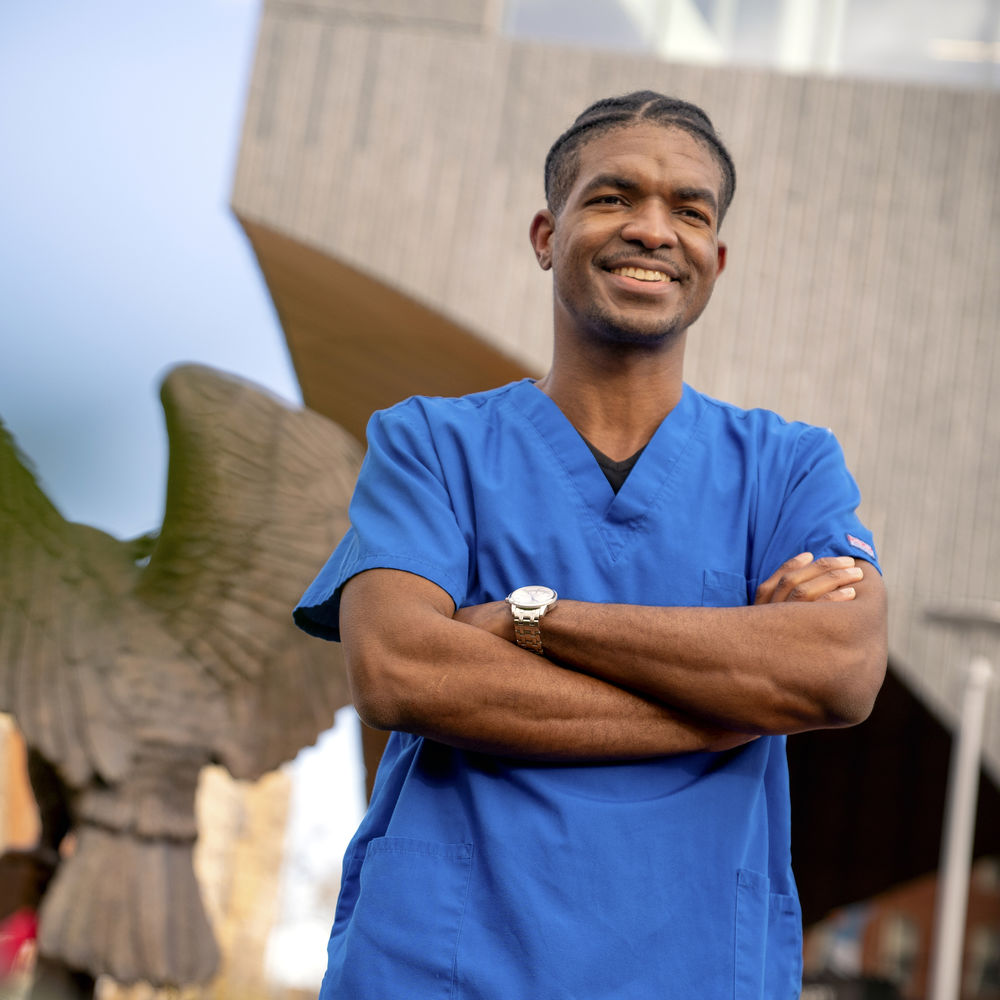Learn more about our DNP
Temple University’s Doctor of Nursing Practice prepares registered nurses to become nurse practitioners, researchers and clinic leaders who advance health equity and quality of life at the individual, community and population levels.
Designed for working professionals, the DNP program is delivered in a hybrid format through a combination of online and in-person classes.
With full-time and part-time options, you can complete the program at a pace that's right for you.
And, Temple's DNP is one of the few post-baccalaureate DNP programs in the region. While many programs are limited to students who have already received an MSN, Temple's program offers degree paths for both post-BSN and post-MSN students.
No GRE is required to apply.
Two options for entry
Post-BSN
The Post-BSN DNP prepares graduates as primary care providers and is designed to be completed in either a three-year full-time or four-year part-time option. Students complete 1,000 clinical hours and choose from two practice-oriented specialties: Adult-Gerontology Primary Care or Family-Individual Across the Lifespan.
Post-MSN
The 37-credit Post-MSN DNP* can be completed full-time in five semesters or part-time in eight semesters, with advanced coursework that builds on students' prior education, professional roles and practice-oriented experience.
*The post-MSN option is currently pending approval from the PA state board of nursing; applications will resume upon approval.
Meet our students

Chad Newton brings a lifetime of experience to Temple’s Doctor of Nursing Practice program. Before coming to study at Temple, he spent seven years as a special education English teacher in Philadelphia’s public schools. He holds degrees in journalism and education. He’s already a working nurse, who chronicled his dramatic experiences in the first wave of COVID hospitalizations in a book he self-published, “The COVID Nurse Experience.” Newton, who arrived in the United States as a teenager from his native Dominica, also has published a book of poetry.
Working toward his doctorate now, he’s training to be a nurse practitioner, with entrepreneurial plans in mind.
“Temple is preparing us to run clinics, to respond to people in primary care settings,” Newton says. “My hope is to open up a clinic of my own.”
As a clinician, Newton says he would like to focus on preventive care: “We really should focus more on trying to prevent a person from becoming so sick that they have to be on 10,000 medications,” he says. “Hopefully that's what I'll be able to do as the provider, when I'm done with the Temple program, to teach people how to maintain proper health so that they don't have to end up in the hospital.”
And he has eyes on his home in Dominica, where he hopes to one day open a health clinic to improve care on the island. Newton returned there in 2017 to assist with medical care after Hurricane Maria hit the island:
“It devastated the infrastructure,” he recalls. “I went with a group of other healthcare providers. We arrived on a boat because no planes were landing, and we went from community to community on a charter minibus. We didn't bring personal items—we brought scrubs and a suitcase full of medical supplies that all of us had kind of garnered from our various employers at the time. It opened my eyes to the lack of healthcare access. Health centers run by just one nurse, no doctor, with 25 or 30 patients waiting. Maybe I can find a way to help.”

